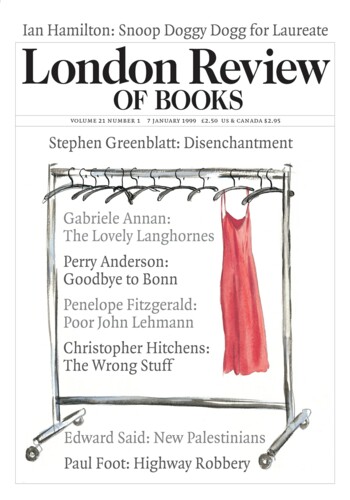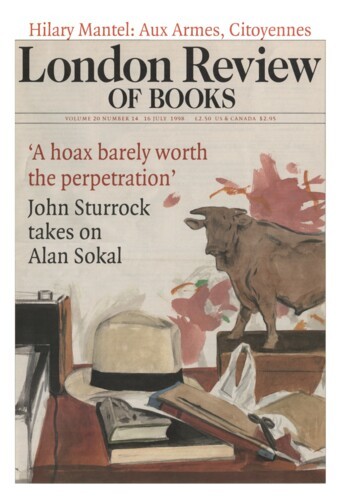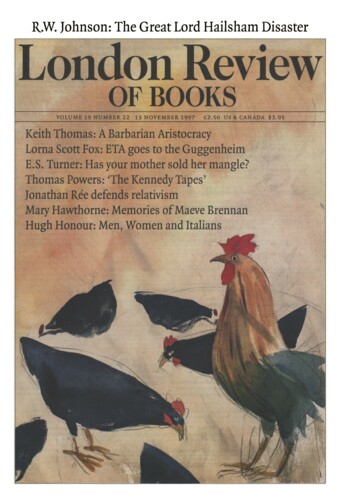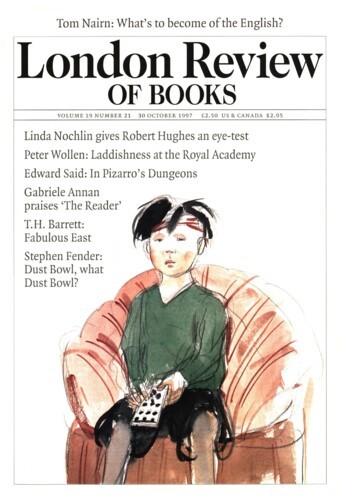Hoarder of Malt: Shakespeare
Michael Dobson, 7 January 1999
Every year, on a Saturday morning in April, the miscellaneous participants in the most improbably charming event in the official national calendar gather for a cup of tea in the Georgian town hall of a small market town in the West Midlands. There is a great deal of scarlet in evidence, in the robes of the assembled Council and of sundry invited academics, white in the vestments of the local clergy, and a respectable quantity of gold in the mayoral chains of office; there are any number of sombre grey suits on visiting diplomats and corporate sponsors; and outside the sunshine, if there is any, glints from the brass instruments and buttons of a military band. More unusually for such an unostentatiously English and provincial event, the procession into which this ill-assorted group will shortly be organised also includes people dressed in simulated buckram and taffeta and the gleaming mock-silver of property breastplates and crowns, all of them borrowed from the second-best wardrobe of the Royal Shakespeare Company in order to deck out students and members of local amateur dramatic societies as representative characters from each of Shakespeare’s plays. This is Stratford-upon-Avon on the weekend after 23 April, a day celebrated since the 18th century as Shakespeare’s Birthday. As Park Honan’s impressive new biography reminds us, the parish records for 1564 make it certain only that he was christened on 26 April, and our knowledge of contemporary church practice suggests that Shakespeare’s real birthday is just as likely to have been 21 or 22 April. But it has become obvious that if the National Poet wasn’t born on St George’s Day it can only have been through an oversight which we have a duty to overlook.




